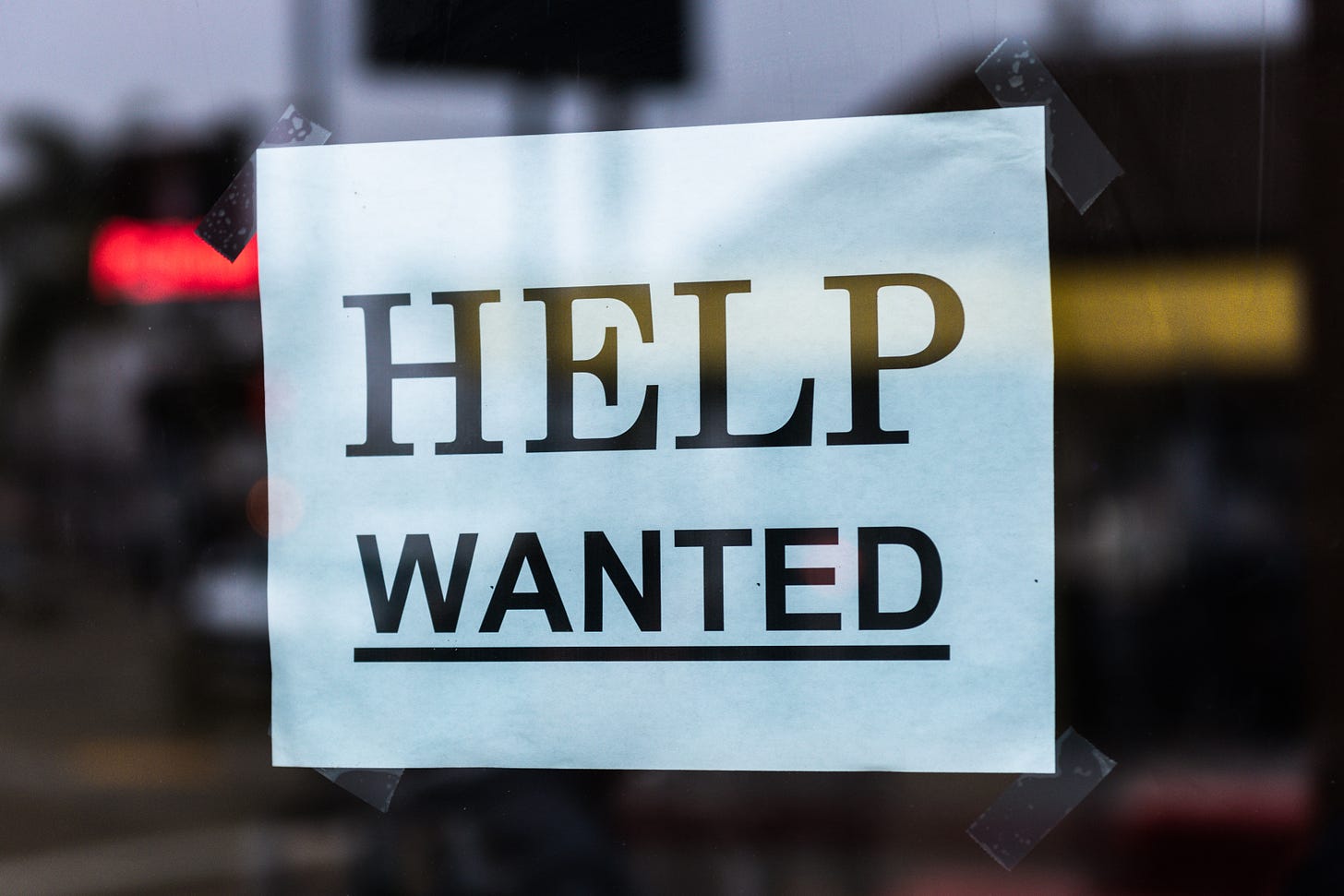When The Government Stops You Working
According to the market research company Roy Morgan, there are almost 2.8 million Australians who either want a job or would like more paid work.
Those 2.8 million people are all missing out on a better standard of living, and those who are unemployed are also missing out on the well-known benefits of having a job: self-esteem, purpose and support.
This is at a time of historically low unemployment. Employers are desperate for workers and many businesses have restricted their activities due to a lack of staff.
Two of the main contributors to this high number are the minimum wage and pension rules. Both are government policies and neither side of politics has any interest in changing them.
The minimum wage issue strikes hardest at those with low employment skills. People just out of school, just out of jail, low literacy, sole parents and refugees, for example. No matter how poor their resume or how willing they are to accept a job, they can only be employed if they are paid the minimum wage, currently $21.38 per hour (but considerably higher for irregular hours and casual positions).
It is against the law to offer them a job that pays less than the minimum wage, even if it is well above the $5 to $10 an hour they receive on welfare. Yet paying them the minimum wage plus various on-costs makes no economic sense for most employers.
Before he entered Parliament and became a Minister in the Labor government, Dr Andrew Leigh was a professor specialising in labour economics. He found that reducing the minimum wage in Western Australia by ten percent would increase employment by around three percent within three months.
In a separate study, Dr Leigh found that most people on the minimum wage are in middle income households. By contrast, low-income households are typically in that position due to unemployment. A reduction in the minimum wage, by creating employment, would help them the most.
Other studies have shown that most people on low wages move on to higher wages after about a year. In other words, low wage jobs are an opportunity for people to start at a bottom rung and work up. But with the minimum wage so high, many cannot even reach the bottom rung and begin to climb.
It is a peculiarly Australian problem: Australia’s minimum wage is now the second highest in the world. Australians start paying income tax once their annual income exceeds $18,200, but they are not allowed to get a full-time job unless it pays more than $39,000 a year.
Another major barrier to both getting a job and working longer hours is the limit on earnings of those receiving age and disability support pensions or carer payments. The Institute of Public Affairs has recently done some research on this.
It found that whereas only 3 per cent of pensioners work in Australia, 25 per cent work in New Zealand. The reason for the difference is that in New Zealand, all income including the pension is taxed at normal income tax rates. There is no reduction in the pension.
In Australia, pensioners are only permitted to earn up to $190 a fortnight ($336 for couples) before their pensions are reduced by 50 cents for every dollar earned above that. A pensioner with a job would not only pay income tax on their wages, but also lose a major chunk of their pension.
The effective tax rate can easily reach two-thirds.
Not surprisingly, most consider it not worth the effort.
And yet, pensioners who work would not only top up their income but also remain engaged in the community and pay tax on their wages.
At a time when the country is desperate for workers, this is a genuine tragedy. Instead of making it easier for those 2.8 million Australians to fill the vacancies, the government is opening the immigration floodgates. For some people, low incomes are compulsory.
The post When The Government Stops You Working appeared first on Liberty Itch.




